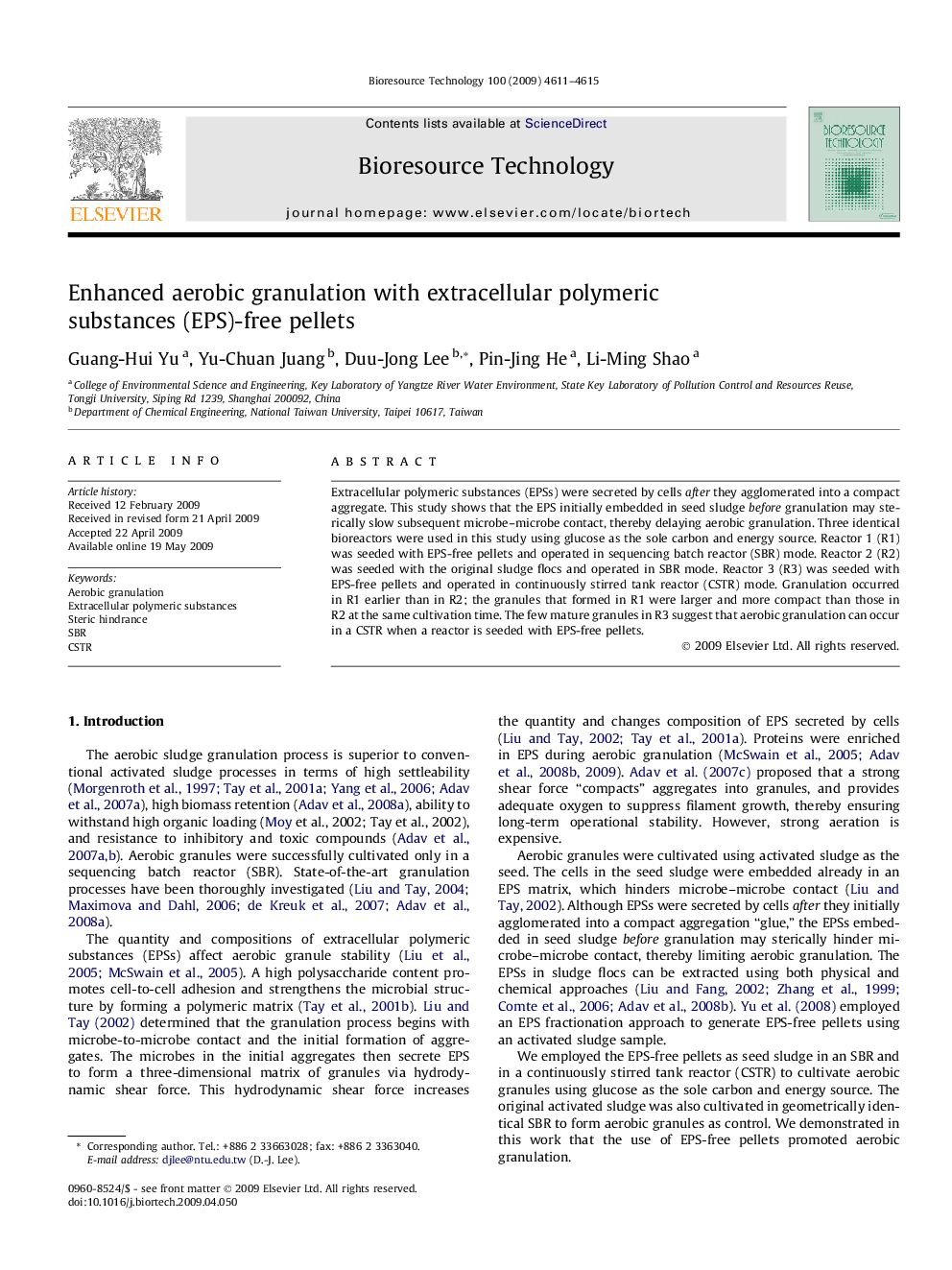| Article ID | Journal | Published Year | Pages | File Type |
|---|---|---|---|---|
| 683142 | Bioresource Technology | 2009 | 5 Pages |
Extracellular polymeric substances (EPSs) were secreted by cells after they agglomerated into a compact aggregate. This study shows that the EPS initially embedded in seed sludge before granulation may sterically slow subsequent microbe–microbe contact, thereby delaying aerobic granulation. Three identical bioreactors were used in this study using glucose as the sole carbon and energy source. Reactor 1 (R1) was seeded with EPS-free pellets and operated in sequencing batch reactor (SBR) mode. Reactor 2 (R2) was seeded with the original sludge flocs and operated in SBR mode. Reactor 3 (R3) was seeded with EPS-free pellets and operated in continuously stirred tank reactor (CSTR) mode. Granulation occurred in R1 earlier than in R2; the granules that formed in R1 were larger and more compact than those in R2 at the same cultivation time. The few mature granules in R3 suggest that aerobic granulation can occur in a CSTR when a reactor is seeded with EPS-free pellets.
